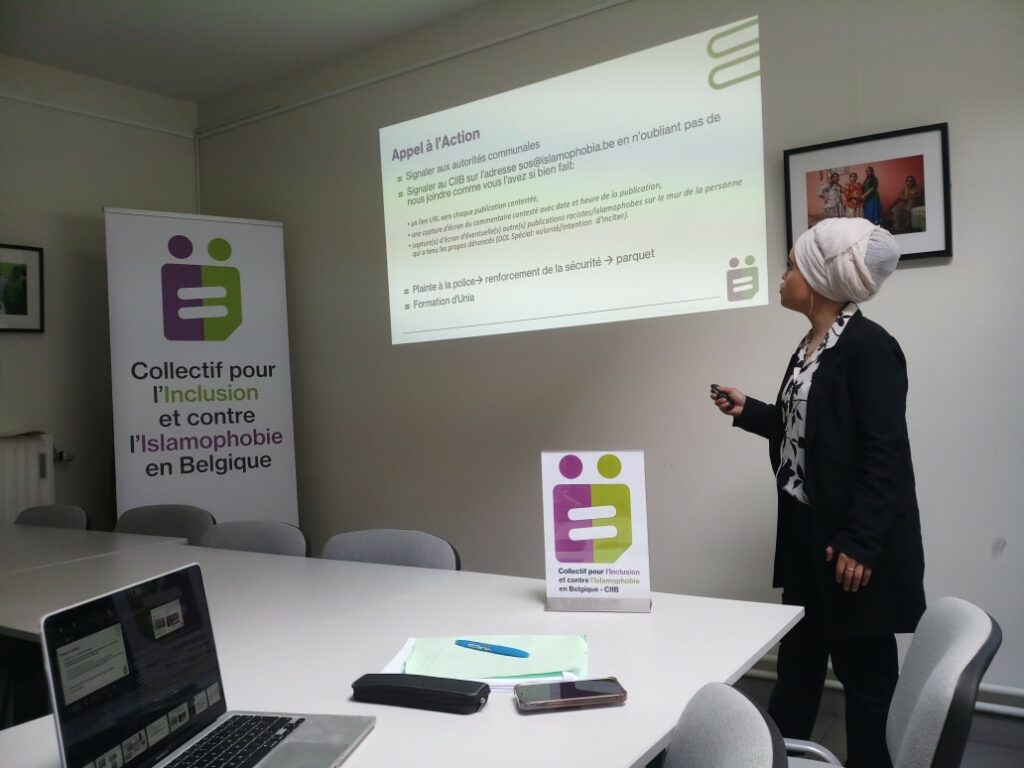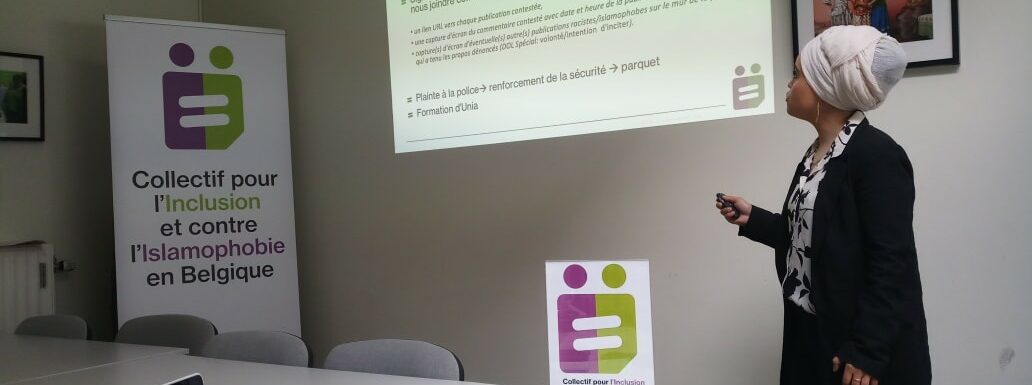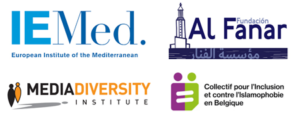
Mustapha Chairi, Layla Azzouzi, and Hajib El Hajjaji, representatives of the MAGIC consortium, will be giving training workshops based on the contents of the upcoming Speak Up for Diversity Toolkit at the locations of Brussels, Verviers, Namur, Charleroi. These are intended for leaders and representatives of Muslim communities and associations working on issues related to the fight against discrimination and the promotion of equality, diversity, and inclusion. The courses are therefore designed as “training for trainers”, and they aim to expand the reach of the guidelines to a wider audience.
These workshops aim to equip participants with the skills and tools to identify and respond effectively to Islamophobia expressed either through hate speech, negative narratives about Muslim women in the media, discrimination, etc. The objective is to equip them so that they can raise awareness in their communities and society of the phenomena of Islamophobia, including gendered Islamophobia expressed in the media and/or other publications.
To do this, the workshops will begin with a talk on general information on the evolution of Islamophobia in Belgium, and after various workshops will allow participants to detect, recognize and react to Islamophobia. The participants also benefit from the testimony of Saliha Ben Ali, president of SAVE Belgium and author of the book “Maman, entends-tu le vent ? Daech m’a volé mon fils“. Ben Ali testifies about her experience with the hateful comments she received following the departure of her child to Syria, and how she responded to them by creating her non-profit organization and writing her book.
Expected results
At the end of these workshops, participants will be equipped with the capacities, skills, and tools necessary to better identify and better combat Islamophobia, including anti-Muslim gender stereotypes. They will be able to raise awareness about Islamophobia on social media, in the media, and in society at large. Finally, they will also be able to develop a more universal vision through a more inclusive approach to intercultural issues and in connection with Muslims, particularly in terms of sharing meals in the workplace, and social diversity in general. All participants are invited to organize themselves to launch an awareness campaign (online or offline) to fight against Islamophobia and sexist stereotypes against Muslim women in the media.




